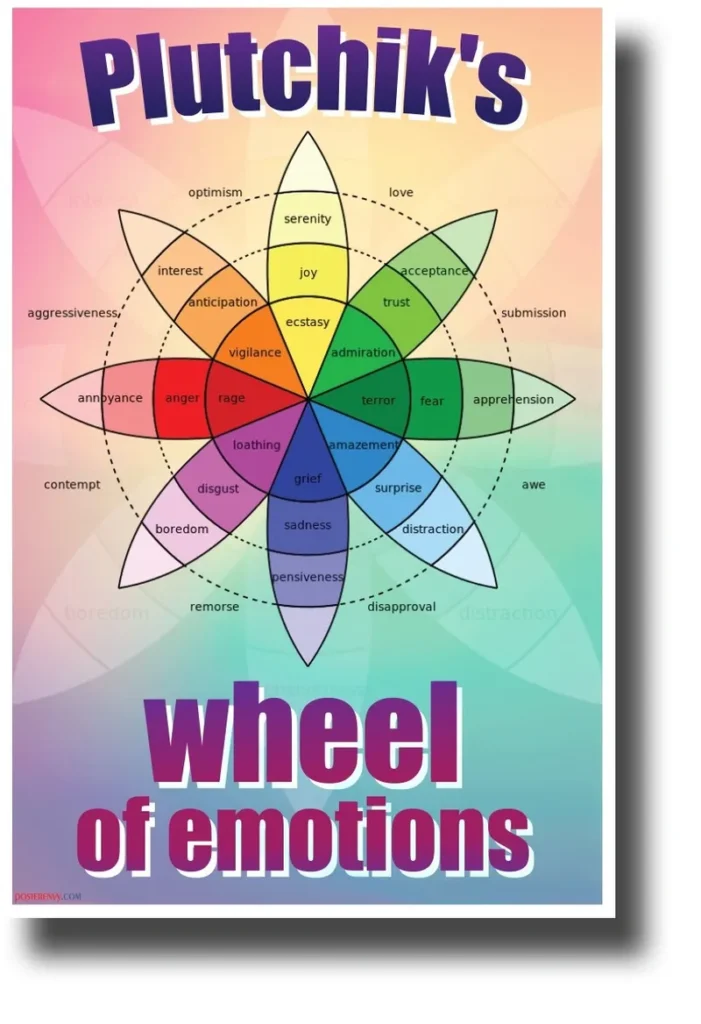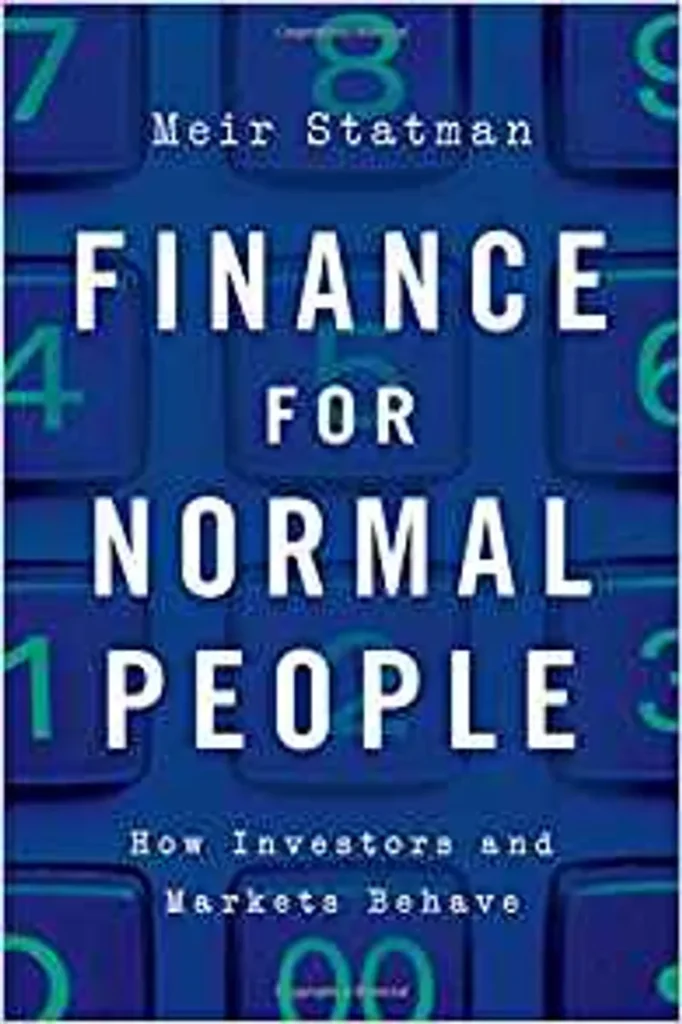
Behavior Finance
First, let me describe couple of things that i learned in traditional economics:
1) price is set by demand & supply &
2) people make rational decisions, and in their self-interest
in non-financial situations (like buying groceries), if price goes down, people buy more, and if an item becomes expensive, people look for alternatives, however, in financial situations, higher the price go for a stock, more people wanna buy & on down side, lower it goes, more people sell.
if people made rational decisions, which don’t hurt them, then Las Vegas wouldn’t exist, which is not the case, as not only Las Vegas has been there for about 100 years, but also the volume of business done per sq ft. of land is humongous & it is growing as 40 million people visit Las Vegas each year (2017 data); imagine that its only about 4.5 mile of strip … traditional economics can’t explain why people from all over the world come here to lose money.
well, it’s all about human behavior & psychology .. & as shown in the picture on your left, behavior finance is a combination of economics, finance & psychology .. and human emotions mainly contribute to the psychology section.
human psychology and emotions
hope & fear, along with love and hate, empathy & revenge, passion & repulsion, anticipation & ignorance is what we call a human being ..!
& to bring my personal story in the mix … those, who know me well, may say that it’s hard for me to understand human emotions & how to deal with them, as these emotions show up in others (not me); however, being an INTJ (introvert, etc.), i think i understand them more than most people i know; but i bury them deep inside & may not reflect them socially.
so those emotions inside me turned into a grandiose vision .. to quantify human behaviors & emotions … i.e. turn them into mathematical equations, & you may say, what a silly idea .. well, that’s what INTP do .. & this quantification of human behaviors and emotions is the basis of my thesis … of course, you may refer a dictionary or a romantic novel if you are simply looking for an explanation / meaning in English for them.


its all about FEAR ..!
FEAR & HOPE – a lethal combination
i use the following line on my blog posts frequently, “Hope is not a strategy.”
whether you are a trader or investor, make a logical argument & go with it, and your logic may turn out as right or wrong … if you are right, you make money & if you are wrong, you learn something .. but hope gives you neither.
remember all those dot com companies which were measured based on PS (price to sales ratio) when they were not at all making money hoping that some day they will … & when people got more creative, they started using a multiple of clicks .. when there are zero dollars associated with a click … & the hopes of so many people associated with FOMO (see above) in 1997-1999 & got thrashed in 2001-2002, as hope didn’t turn into reality .. & i am not sure if people learned something, as these episodes occur every decade or so.
& Yes, few of those companies survived, and one of them was amazon; but amazon only had its stock ride much later, in fact, in 2010 decade .. when its valuations were beyond hope and were based on real business … think about it


People are people – normal but irrational
do you ever wonder why people on wall street sell you something called a contrarian strategy … it goes something like this, “buy when others are selling and sell when others are buying” … whenever i hear or read this line, i can’t stop laughing, as for a transaction to occur you need a buyer as well as a seller … so, how do you figure out ..?
1) who these “others” are ? and
2) whether they are buying or selling ..?
because the implementation of the strategy would requires answering these two questions?
let’s start with the first question … & to find out who others are .. first you need to discover who you are …? & that’s where behavior finance can help you
we learn statistics, probability & various topics in finance in school … interestingly, what the teachers / professors don’t tell you is that most of this material is applicable only for rational people … people those who follow logic; who take all the data & facts into account before making a decision … however, most people neither have time nor resources to collect all the data before making a decision .. further, even if people have all the data, they may chose to take a decision that is not necessarily in their favor, as they enjoy the act … e.g. people gamble against a casino, people buy lottery tickets where the odds are one in a million, people do smoking even though the packet says, “cigarette smoking is injurious to your health” … normal people may spend money for pleasure even though the decision may not be economically sound or healthy.
hence, most of the people are not rational, but normal … but most theories & concepts of finance that you learned in schools are only applicable for rational people, & since most of people in the real world are not rational, those theories don’t work … or in other words, people behave exactly opposite to what you learned in schools … therefore, prof. Statman of SCU, an expert in behavior finance, wrote a book – “finance for normal people” … the title of the book says it all.
let me make an important point here .. i am only making a distinction between rational versus irrational behavior where rationality is defined by traditional economics; as sometimes humans follow an exactly opposite aka irrational behavior; however, i am not using the words right or wrong behaviors … as right or wrong is all based on a context .. and finance has no business to tell you what’s right or wrong .. its your personal choice/decision.
dealing with money is emotional business …!
in 1990, Sharpe, Markowitz and Merton Miller received the noble prize in economics for CAPM – Capital assets pricing model; & for last 30 years or so, financial professionals have been selling you the asset allocation model suiting your needs i.e. making adjustments for risk … your investment advisor figures out the right allocation of assets for you; then she generally recommends using the contrarian strategy to make buy/sell decisions … but did you ever wonder why it is not called “a strategy” or “the strategy” but “contrarian strategy” … why use the word contrarian which sounds to me like “walking on your head ..?” … maybe you should ask your financial advisor about this during your next visit.
a contrarian strategy means think in a normal way first, and then reverse your thought … which should raise a red flag on what does normal mean & why should you reverse it … ? it is due to the fact that most of the humans are irrational (as defined by economists) but normal .. & the economics and finance that is taught in schools is applicable only for rational people … which most of you are NOT & now you know it ..! … that’s why in order to invest successfully, you need to arrive at a strategy by reversing your own thinking; hence, it is called a contrarian strategy.
behavior finance helps you to find out whether your behavior is rational or normal (irrational) in various situations? And based on that behavior how will you make certain decisions with your finances.
moreover, have you been able to achieve those returns in your portfolios prescribed by your advisor using asset allocation ..? … probably NO … & do you know why ..? because what has been missing in the current models is your own behavior as your behavior leads to timing of those decisions … and timing determines your portfolio returns versus asset class returns that you own, and that’s another nudge that behavior finance offers you.
let me share a real example here … the Magellan fund ran by famous Peter Lynch returned about 29% annual during its peak period; however, an average investor in Magellan fund made only 5%, and in fact, some even lost money due to wrong timing … why ..?
below here you will find a list of behaviors that can’t be explained using traditional economics.
men are racist with their own money …
& it’s perfectly legal, but you are hurting yourself … how so ..?
let’s say you have a $100 bill in your pocket & you enter in a casino, you make a bet and win $100 on it … now you have two $100 bills & you decided to leave the casino to enjoy … (btw, leaving a casino when you earned a $100 itself is a rare behavior as most will end up losing the gained money!) … chances are high that you will keep the two bills in two separate pockets – one that you originally had and the other that you gained in the bet .. it’s highly likely that you will blow the second bill going to a fancy restaurant or doing some fun activity & save the original bill .. mainly because you treat the bills differently, even though both have the same economic value.
do you gamble with your money … don’t be shy as a large % of men as well as women do ..!
as per traditional economics, humans behave rationally when making financial decisions; so, they will never play a lottery as the odds of winning are one in millions … on the contrary, people play lotteries in 47 jurisdictions in USA, raising $17.6 billion in profits for state budgets in the 2009 fiscal year with 11 states collecting more revenue from their state lottery than from their state corporate income tax during FY 2009 .. by playing lottery, you may be hurting yourself, but i guess it’s good for society, so there is some good in there … i even heard someone say that they play lottery because it helps state providing funding for schools … & then provide justification using Karma thingy (for which they have no clue!) … read more about this in the top floor story on Market behavior page.
funding schools is not a bad idea, but feeling good by losing money through your purchase of a lottery is based on false logic.
& here is one for the foodies …
say you are having dinner with your family at a fine restaurant .. you enjoyed the meal and are really full .. at the end of the meal, the waiter approaches you with a fine set of dessert items and says, “here are these wonderful dessert items as a courtesy of the chef” .. & to make the situation real, i have added the picture here, but if you have a real self-control, you may decide not to look at the picture.
now the question is, would you accept the items or not ..? remember, they are your favorite and and at no cost, but also you are full .. your response decides whether you are a rational vs irrational (normal) person and how well would you do in stock market ..?
.. so enjoy your food ..!
your risk profile is not a static item … it changes with the situation
humans risk taking capacity changes based on the situation are in … so a static risk profile as calculated by your financial advisor is a bogus thing … let me explain.
if you purchase a security and the position has gains, you will become keen in closing the position and taking the gains unless you are a sophisticated investor/trader; i.e. your risk tolerance is limited as you don’t want to lose your gains – makes sense & you end up closing the position.
now consider an opposite case, you have a position and it turns into a loss, you will be inclined to hold it for longer duration (than in above case) hoping that it will at least break even, even though you watch it going down (in more losses) everyday .. so, your risk tolerance is much higher when you have a loss versus when your position has gains; in other words, the risk tolerance is dynamic and it depends on the current state of your portfolio ..
the asymmetric nature of human behavior (with gains versus losses) can only be explained with behavior finance and hence your risk profile is dynamic & is based on the current state of your portfolio.
for computer science / electrical engineering geeks …
using electrical engineering analogy, if traditional economics is like analog engineering; i.e market moves are continuous functions based on demand & supply, based on price; then behavior finance is its digital equivalent .. which says. market moves are based on people’s emotions and behaviors, and people (as a group) move from one behavior to another rather than the analog equivalent in finance as PE, PS etc.
following similar thinking, if traditional economics is like procedural programming (e.g. programming in c language) then behavior finance is like object oriented programming [in c++ or java]; i.e. market moves are a collection of states described using a state diagram (see picture on Humans behavior page); plus as per state diagram; only certain [next] states are applicable/possible from a given state .. it’s a not a random move diagram – that you can jump from any state to any other state — in fact, the various state of emotions build upon others … think about it ..!
as a foot note, you can imagine how my destiny is built throughout my life, as i turned from a student of physics & mathematics (high school) to studying electronics engineering & computers to object oriented modelling and programming & working at Sun Microsystems) to economics, finance and ultimately to behavior finance (Master in Finance which ended in behavior finance) that opened a new chapter in my life!
behavior finance is a study of human behavior and its relationship/effect on people’s finances
studying behavior finance allows fixing your own [behavior] with understanding of behavior traps & exploiting others’ [behavior] to build your competitive advantage in financial markets.
your emotions control your behavior and your behavior controls the timing/nature of your investment decisions, which in turn affect your portfolio returns; hence, i concluded that “timing is everything on wall street ..!” which is not what is preached by the experts … hence part of my mission is “to challenge the conventional wisdom on Wall Street.”
in 2002, Daniel Kahneman (who worked with Amos Tversky) received the noble prize on psychology of judgment and decision-making (when people didn’t recognize behavior economics!)… & Richard Thaler – an expert in behavior economics & famed for “Nudge Theory” won the 2017 Nobel Prize for Economics … the recency of these awards should give you an idea about the newness of this topic.
this website is about my journey of explorations,which include: trading based on my thesis, traveling around the world, learning my own and others’ behaviors in the context of current economy & markets, analyzing the drivers of those behaviors, & finally, enjoying the fruit of my labor ..!
Sunk cost – how mind is not able to close on losses?
you are walking down the street to pick up some milk .. halfway there you remember that this particular shop is actually closed on Sunday afternoons and as far as you know, there are no others open nearby. still, you’ve already spent 10 minutes walking in that direction, so you might as well at least finish your journey, right? unless you were already desperate to stretch your legs, this is a transparently stupid way of thinking.
a gambler might call it chasing your losses or don’t throw good money after bad – captures a similar sentiment .. economists call it the sunk cost fallacy, and it’s ubiquitous.
we all do it .. ever gone to the cinema and stayed to the end of a film you actually loathed 10 minutes in – or watched yet another season of what was once your favorite TV show? this is the logic that says “i have sunk a lot of money into my old car. i can’t just scrap it now .. i really should replace that faulty gearbox”.. those who stay in bad relationships for several additional years because they don’t want their time together to have been “all for nothing” & any good poker player knows when to fold.